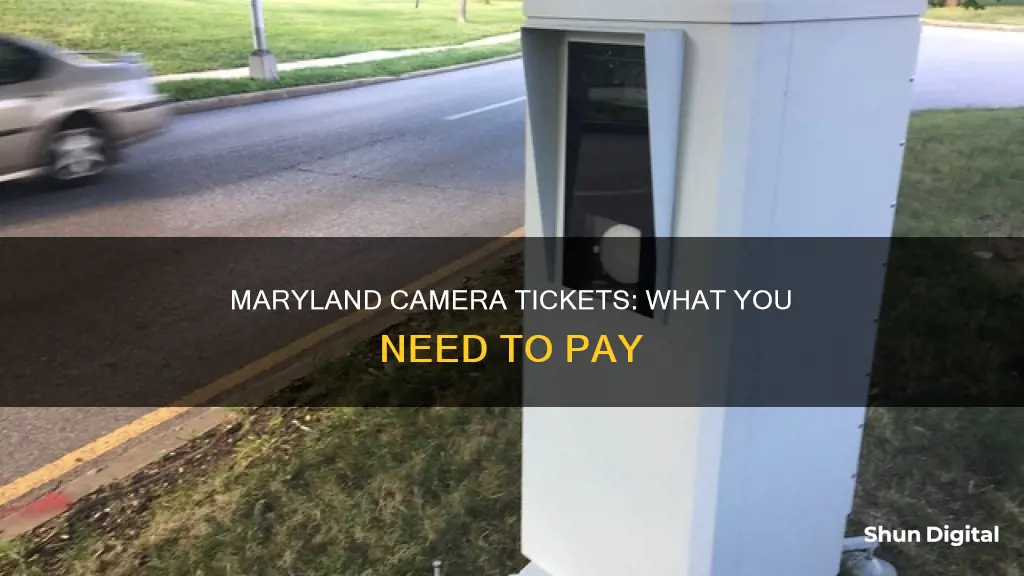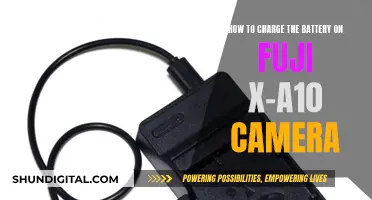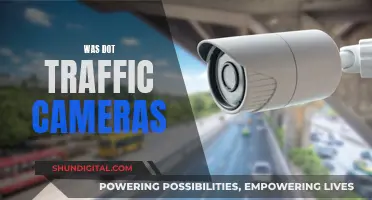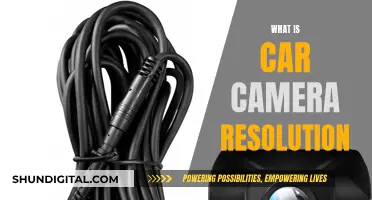
In Maryland, speed cameras are placed in residential areas, school zones, and high-risk locations to capture vehicles traveling 12 or more miles per hour over the speed limit. The registered owner of the vehicle receives a citation by mail, including photographs and the speed recorded. While these tickets are considered civil violations and do not carry criminal penalties or points on one's driver's license, they can result in irritating fines. Individuals have the option to pay the fine or contest the ticket in court. Failure to respond to the ticket can lead to additional fees and penalties, including the suspension of one's driver's license.
What You'll Learn

Pleading guilty and paying the fine
If you receive a payable traffic citation in Maryland, you must comply with the citation within 30 days of receiving it. Pleading guilty and paying the fine is one of the four options available to you. Here's what you need to know about this option:
Paying the Fine and Pleading Guilty:
- This option is available for "payable" traffic violations, such as speeding tickets or failing to stop for a school bus. These are violations for which you can choose to plead guilty and pay a fine without appearing in court.
- You can pay the full fine by phone, mail, in person at any local District Court, or using the Maryland Uniform Traffic Citation Payment Kiosk at your local Motor Vehicle Administration (MVA) office.
- Paying the fine is considered an admission of guilt, and the charge will become part of your driving record.
- The Maryland MVA may assess points on your license, which could increase your insurance premiums. The number of points is determined by the MVA, not the District Court.
- Speeding camera tickets are considered civil violations, so you don't have to worry about points being added to your driver's license or your insurance provider being notified.
- If you choose to pay by phone or online, a non-refundable convenience fee applies. If you pay in person with a credit card, a service charge will be added to your fine.
- If you received multiple citations, you can place all of them in the same envelope and mail them together.
- If you choose to pay the fine, do not request a trial date or a waiver hearing date.
- If you fail to comply with one of the four options within 30 days of receiving the citation, the MVA will be notified and may take action to suspend your driver's license. Driving on a suspended license is a criminal offense and can result in incarceration.
The Evolution of First Disposable Camera
You may want to see also

Payment plan options
If you receive a payable traffic citation in Maryland, you must comply with the citation within 30 days of receiving it. One of the options available to you is to request to enter into a payment plan under § 7–504.1 of the Courts Article. To be eligible for a payment plan, you must:
- Have at least $150 in total outstanding fines.
- Agree to make monthly payments of 10% of the total fine amount.
- Inform the clerk if you change your address during the term of the payment plan.
- Complete the request form: Obtain the Request for Traffic Violation(s) Payment Plan (DCA-131) form from a District Court clerk or online at mdcourts.gov/district/forms. Include the citation number, court date, and fine amount for the specific offenses for which you are requesting a payment plan. Read the notices on the form, sign it, and acknowledge that you understand and agree to the terms of the payment plan agreement.
- File the request: Submit the completed form to the District Court. Visit mdcourts.gov/district/directories/courtmap for District Court locations.
- Receive notification on the status of your request: The clerk will notify you if your request is approved or denied, depending on whether the outstanding fines you listed are eligible and total at least $150.
- Make payments on the approved plan: Refer to your Payment Plan Number, which is located at the top right of your agreement, whenever you make a payment or have a question. Your first payment is due 30 days after the clerk approves your request, and subsequent payments are due once a month for the next nine months on the dates noted in the agreement. Payments can be made in person or by mail to the court address where your plan was approved, although they will be accepted at any District Court location. Payments cannot be made online, on the Interactive Voice Response (IVR) system, or at MVA kiosks. If the due date falls on a day when the court is closed, your payment is due by 4:30 pm on the next business day.
Please note that red light, speed monitoring, work zone, vehicle height, school bus camera, toll, and parking citations are not eligible for payment plans, except for parking citations issued on a statewide DR 49 Traffic Citation.
Repairing Camera Batteries: A Step-by-Step Guide
You may want to see also

Pleading not guilty and requesting a trial
If you receive a payable traffic citation in Maryland, you have four options: pay the fine, request a payment plan, plead "guilty with an explanation" and appear for a waiver hearing, or request a trial and appear in court. If you choose to request a trial, you are pleading not guilty to the speeding offence and it will be the state's job to prove your guilt.
To request a trial, you must check the "Request a Trial" box on the ticket, sign and date it, and mail it to the District Court Traffic Processing Centre within 30 days of receiving the ticket. It may take several weeks for a trial date to be scheduled, and if you do not receive a trial date within six weeks, you should contact the District Court in the county in which you received the ticket.
At the trial, the officer who issued the ticket will testify, and you will have the opportunity to present your side of the case. After hearing both sides, the judge will render a decision. If you are found guilty, you have the right to appeal within 30 days of the trial date. There are non-refundable court costs for filing an appeal.
It is important to note that if you fail to appear for the trial, the Motor Vehicle Administration (MVA) will be notified and will take action to suspend your license. Driving on a suspended license is a criminal offence for which you can be incarcerated.
Camera Battery Basics: Understanding Your Power Source
You may want to see also

Contesting the ticket
If you receive a camera ticket in Maryland, you have the right to contest it. Here is a step-by-step guide on how to contest a camera ticket effectively:
Requesting a Hearing
Receive the Ticket: When you receive a camera ticket, it will include information about the violation and instructions on how to pay the fine or contest the ticket.
Decide to Contest: If you choose to contest the ticket, you must request a hearing. This can usually be done by mail, online, or by calling the provided contact number on the ticket.
Timely Action: Ensure you request a hearing within the specified timeframe, typically within 30 days from the date of the citation, to avoid additional penalties or fees.
Gathering Evidence and Documentation
Gather Evidence: Collect any evidence that supports your case, such as photographs of the area where the violation occurred, maintenance records of the camera, and statements from any passengers or witnesses.
Documentation: Bring all relevant documentation, such as the ticket itself, your vehicle registration, and any correspondence related to the ticket.
Challenging the Accuracy of the Camera
Accuracy of the Camera: Challenge the accuracy of the camera by requesting maintenance and calibration records. If the camera was not properly maintained or calibrated, the recorded speed or violation may be inaccurate.
Signage Issues
Signage Issues: Argue that the signage indicating the speed limit or the presence of a camera was missing, obscured, or incorrectly placed. Take photos to show the current state of the signage.
Mistaken Identity
Mistaken Identity: If you believe the camera captured the wrong vehicle, gather evidence to support this claim, such as proving you were not driving in that area at the time.
Presenting Your Case at the Hearing
Prepare Your Presentation: Ensure you can present your evidence and arguments clearly and concisely. Practice your statements to cover all relevant points effectively.
Judge's Review: The judge will examine the evidence and listen to both your argument and the prosecution's case. They may ask questions to clarify any points.
Outcome Decision: Based on the presented evidence, the judge will decide whether to uphold the ticket, reduce the fine, or dismiss the ticket entirely.
Contesting a camera ticket in Maryland requires careful preparation and a clear understanding of your rights and the legal process. By gathering evidence, presenting a solid defense, and understanding what to expect at the hearing, you can increase your chances of successfully contesting the ticket. If you need further assistance, consider consulting a traffic attorney for additional support and guidance.
Cleaning Exploded Camera Batteries: Step-by-Step Guide
You may want to see also

Appealing the judge's decision
If you receive a camera ticket in Maryland, you have several options. You can choose to pay the fine and plead guilty, request a payment plan, ask for a waiver hearing to plead "guilty with an explanation", or request a trial to plead "not guilty". If you decide to contest the ticket, you must do so within the specified timeframe, which is typically within 30 days from the date of the citation.
Now, let's focus on the process of appealing the judge's decision after receiving a camera ticket in Maryland:
Step 1: Understanding the Appeal Process
The first step in appealing the judge's decision is to understand the specific rules and procedures for appeals in Maryland. The state's court system will have guidelines outlining the process, including any deadlines that must be met. It's important to carefully review this information to ensure your appeal is filed correctly and on time.
Step 2: Identifying Grounds for Appeal
To successfully appeal a judge's decision, you must have valid grounds for doing so. This could include legal errors made by the judge, new evidence that was not available at the time of the original hearing, or a belief that the sentence imposed was excessive or inappropriate. Consult with a legal professional to discuss the specifics of your case and determine if you have a strong basis for an appeal.
Step 3: Filing the Appeal
The appeal process typically involves filing a notice of appeal with the appropriate court. This document will outline the reasons for your appeal and request that the judge's decision be reviewed by a higher court. In Maryland, you have 30 days from the date of the judge's decision to file an appeal for a red light violation.
Step 4: Preparing for the Appeal Hearing
Once your appeal is accepted, you will need to prepare for the appeal hearing. This may involve gathering additional evidence, preparing legal arguments, and consulting with witnesses. It is highly recommended to seek the assistance of an experienced traffic attorney who can guide you through the appeal process and represent you during the hearing.
Step 5: Attending the Appeal Hearing
During the appeal hearing, you or your attorney will present your case to the higher court, explaining why you believe the judge's original decision was incorrect. The prosecution may also present their arguments, and the court will carefully consider all the information before making a final decision.
Step 6: Receiving the Decision
After the appeal hearing, the higher court will issue a decision on your case. This could result in the original decision being upheld, modified, or overturned. It's important to remember that the appeal process can be complex and may take some time to reach a final conclusion.
Remember, each case is unique, and it's always advisable to consult with a qualified attorney who can provide personalized guidance based on the specifics of your situation.
Rechargeable Batteries for Fuji Cameras: What You Need to Know
You may want to see also
Frequently asked questions
Failure to pay a camera ticket in Maryland can result in additional fees and penalties, and the Motor Vehicle Administration may begin the process of suspending your driver's license.
If you are the registered owner of the vehicle, you can contest the ticket and appear at a hearing to prove your innocence. You should provide evidence, such as a certified statement from your employer or documentation from a medical professional, to support your claim.
You can pay a camera ticket in Maryland by mail, phone, or in person at a local District Court or Motor Vehicle Administration (MVA) office. You can also pay online, but a convenience fee will apply.







